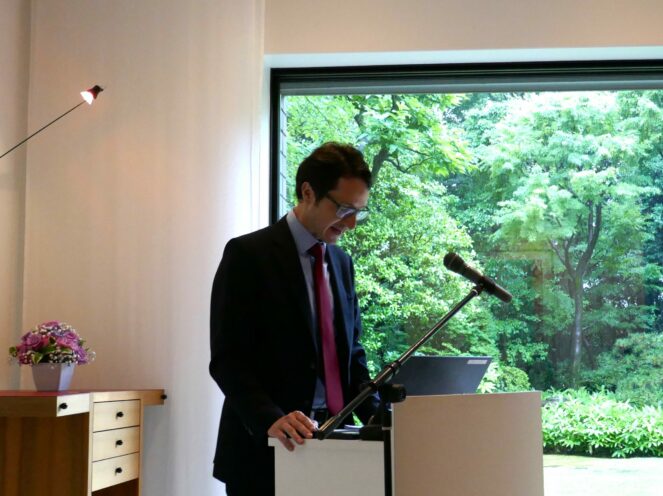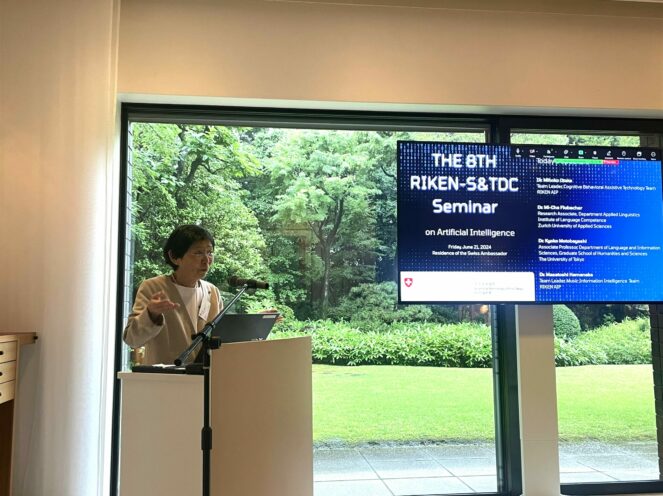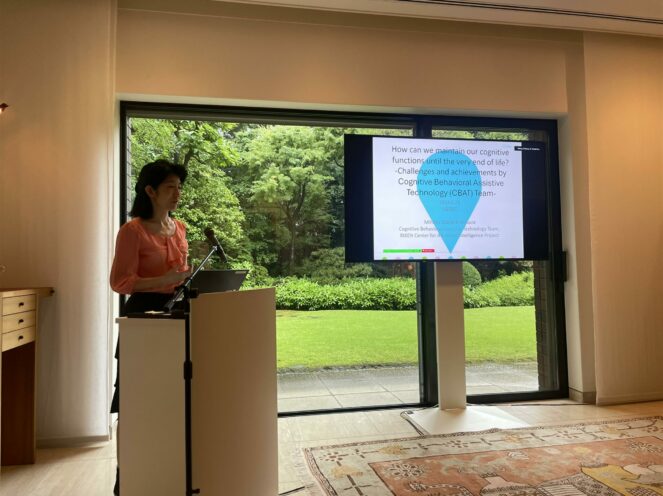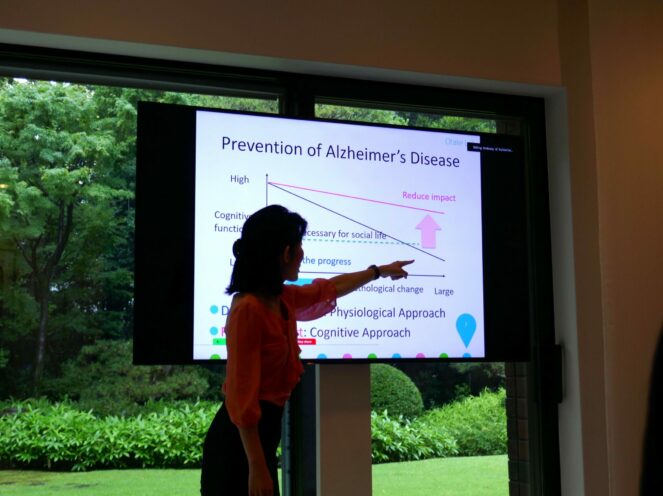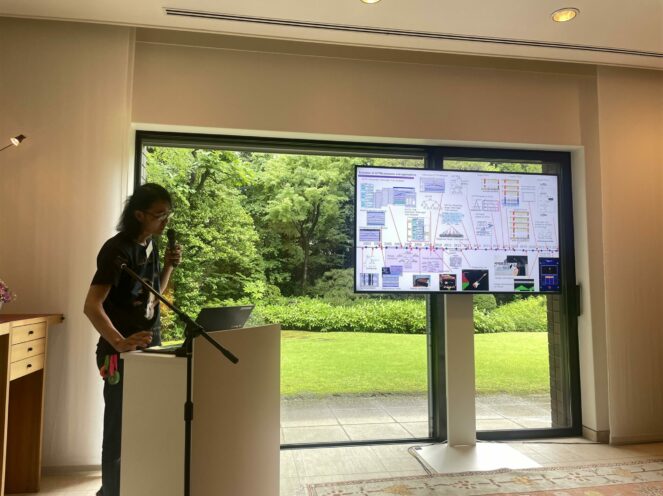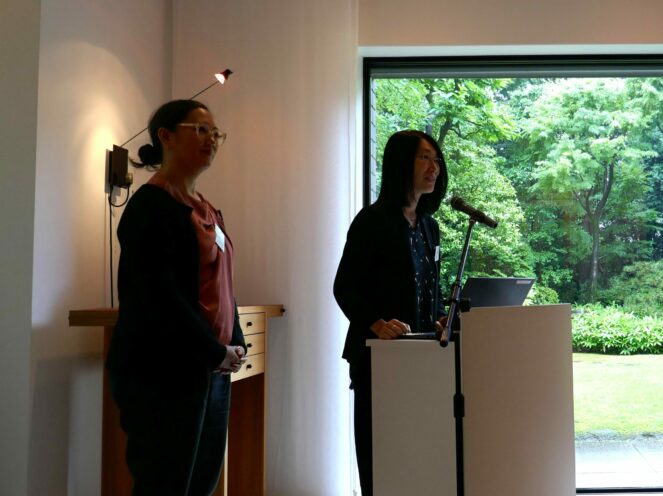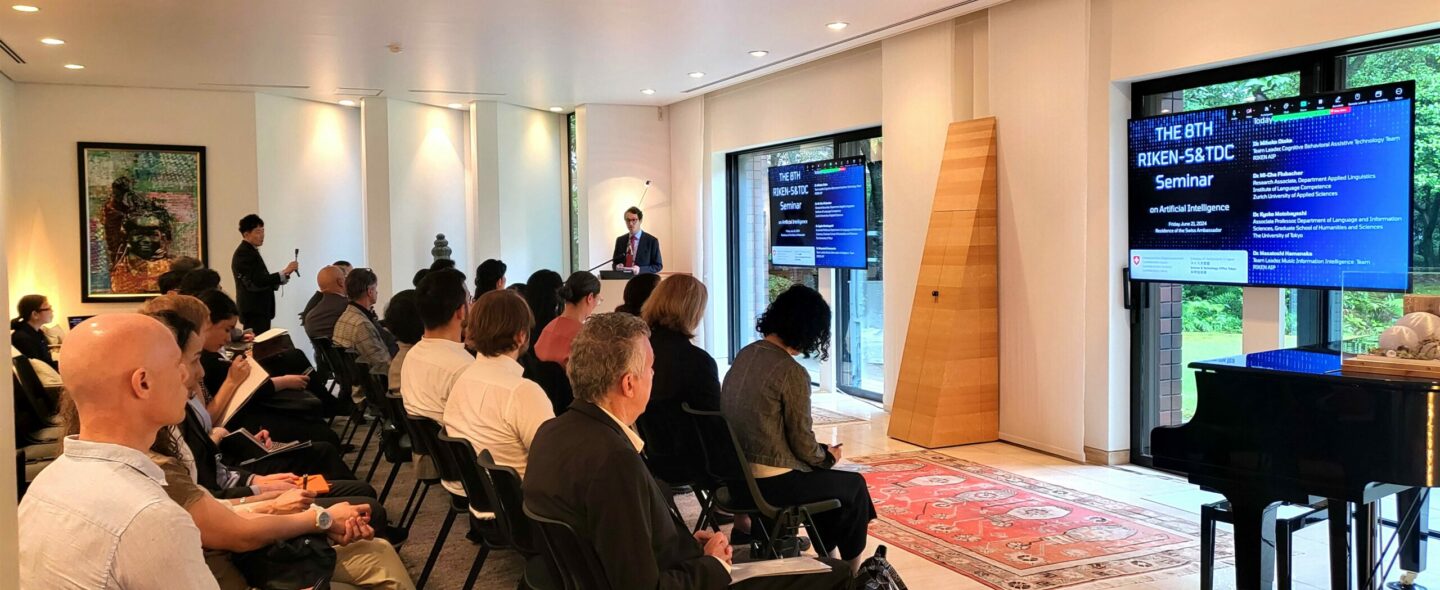
The 8th RIKEN S&TDC Seminar, organized by RIKEN and the Science & Technology Diplomatic Circle (S&TDC), was held at the Swiss Residence on Friday, June 21, 2024. The seminar saw participation from an international audience mainly composed of representatives from diplomatic missions based in Tokyo, underlining the global interest in AI developments.
The seminar began with opening remarks from the Chargé d’Affaires a.i. of Switzerland, Mr. David Braun, who highlighted the importance of AI and Switzerland’s excellent position in AI’s R&D and innovation as a favored location for global tech companies and an attractive partner for international joint research projects. Dr. Makiko Naka, Executive Director of RIKEN, followed with remarks stressing the commitment of the RIKEN Center for Advanced Intelligence Project (AIP) to advancing AI research and thanking the involved parties for organizing these seminars.
Key presentations were delivered by two principal investigators from RIKEN AIP. Dr. Mihoko Otake, from the Cognitive Behavioral Assistive Technology Team, presented her group’s effort to develop, analyze, and evaluate the effects of cognitive behavioral assistive systems encouraging interactive communication among older adults experiencing cognitive impairment. Their work not only addresses significant social needs but also digs into fundamental questions of human intelligence and the mechanisms and factors responsible for cognitive decline. She also mentioned her team’s several international partnerships, including the University of Zurich (UZH).
Dr. Masatoshi Hamanaka, from the Music Information Intelligence Team, introduced various projects his group is working on revolving around AI assistance in music listening and composing. For instance, to help the audience understand the remixes of music by DJs at break-dancing competitions, they developed a real-time future-rhythm visualizer broadcast live on TV. Another fascinating example is the Melody Slot Machine, an interactive music system that allows the creation of unique music performances by combining parts of different famous melodies. The deep structure of the melody does not break as it uses a particular melodic morphing method. Their CHO KOUKA project will also use this method to compose a school song using existing melodies chosen by elementary school students.
The seminar also highlighted a Swiss-Japanese collaborative research project on AI in linguistics. Dr. Mi-Cha Flubacher from the Institute of Language Competence, Zurich University of Applied Sciences, and Dr. Kyoko Motobayashi from the Department of Language and Information Sciences, University of Tokyo, introduced their research, Affective Responses to AI in Language Work. The study aims to assess the lived experiences and affective effects of AI and digital automation on language workers in Switzerland and Japan. Their research received the Research Partnership Grant from ETH Zurich as Leading House Asia (LHA) mandated by the Swiss State Secretariat for Education, Research and Innovation (SERI) to promote collaboration in science and technology with the East and Southeast Asia region.
Before the seminar concluded with some time for open discussion allowing the audience to ask the researchers their questions, Ms. Kyoko Suzuki, S&TDC co-chair and head of the Science and Technology Office Tokyo from the Embassy of Switzerland highlighted the S&TDC’s mission to foster interactions between diplomats and the Japanese scientific community.
Background
RIKEN is Japan’s largest and most comprehensive research organization. It is renowned for its pioneering research across a wide range of scientific disciplines. For over a century, RIKEN has fostered innovation and maintained a network of world-class research centers across Japan.
The S&TDC is an association comprising members from over 80 diplomatic missions and affiliated organizations in Tokyo. It provides a platform for interaction between diplomats and leaders in government, academia, and the private sector, focusing on science, technology, education, and innovation. The embassies of Australia, Norway and Switzerland currently co-chair the S&TDC.
